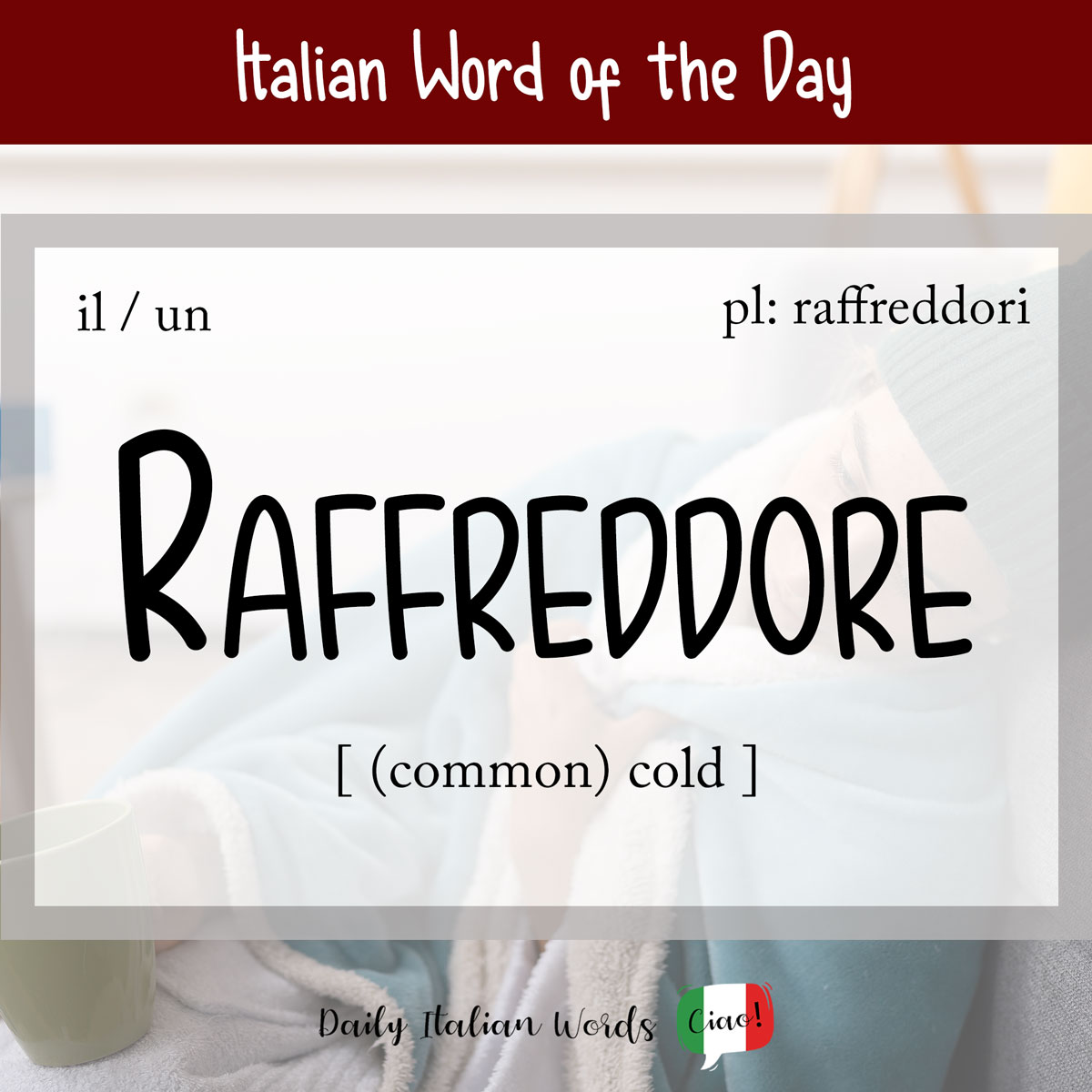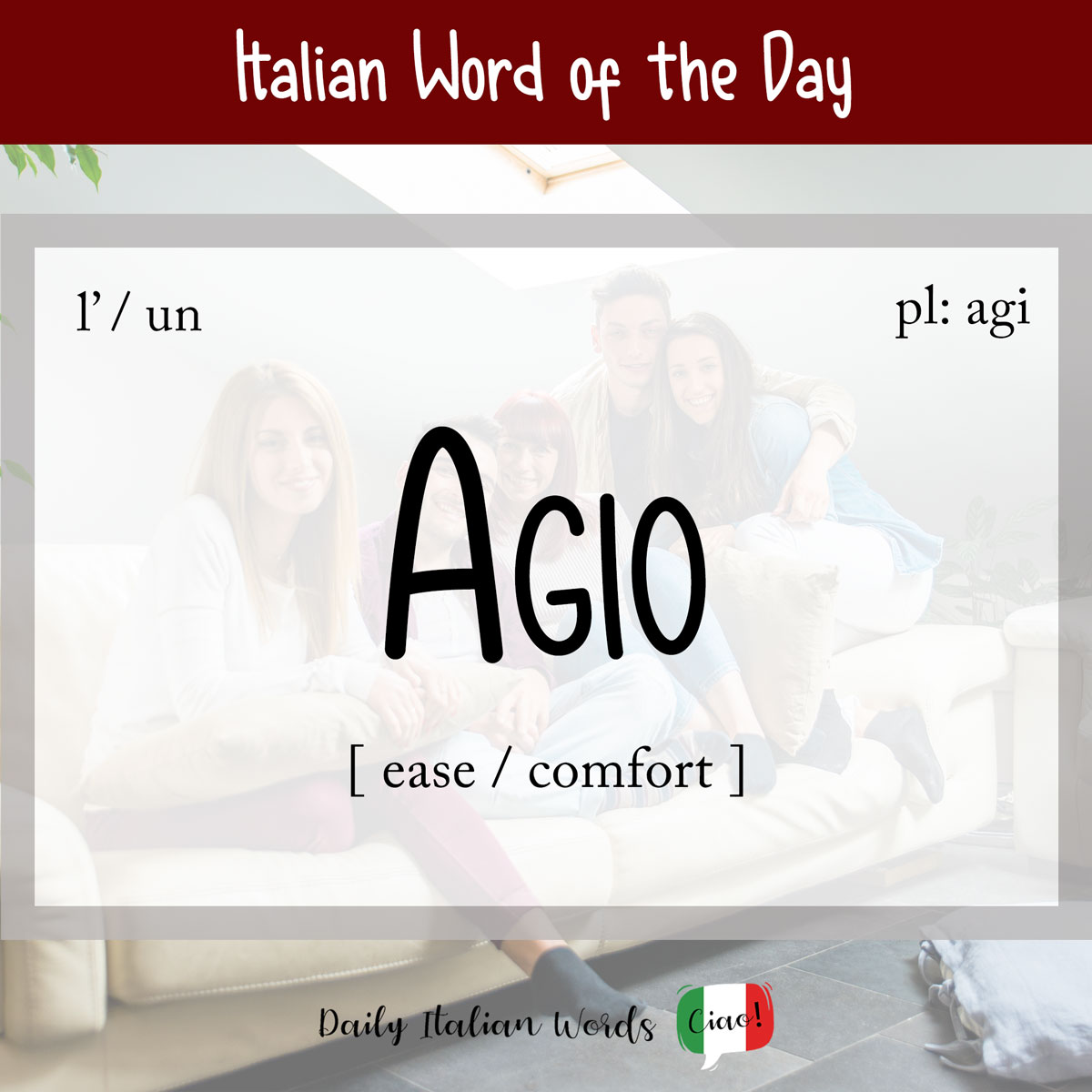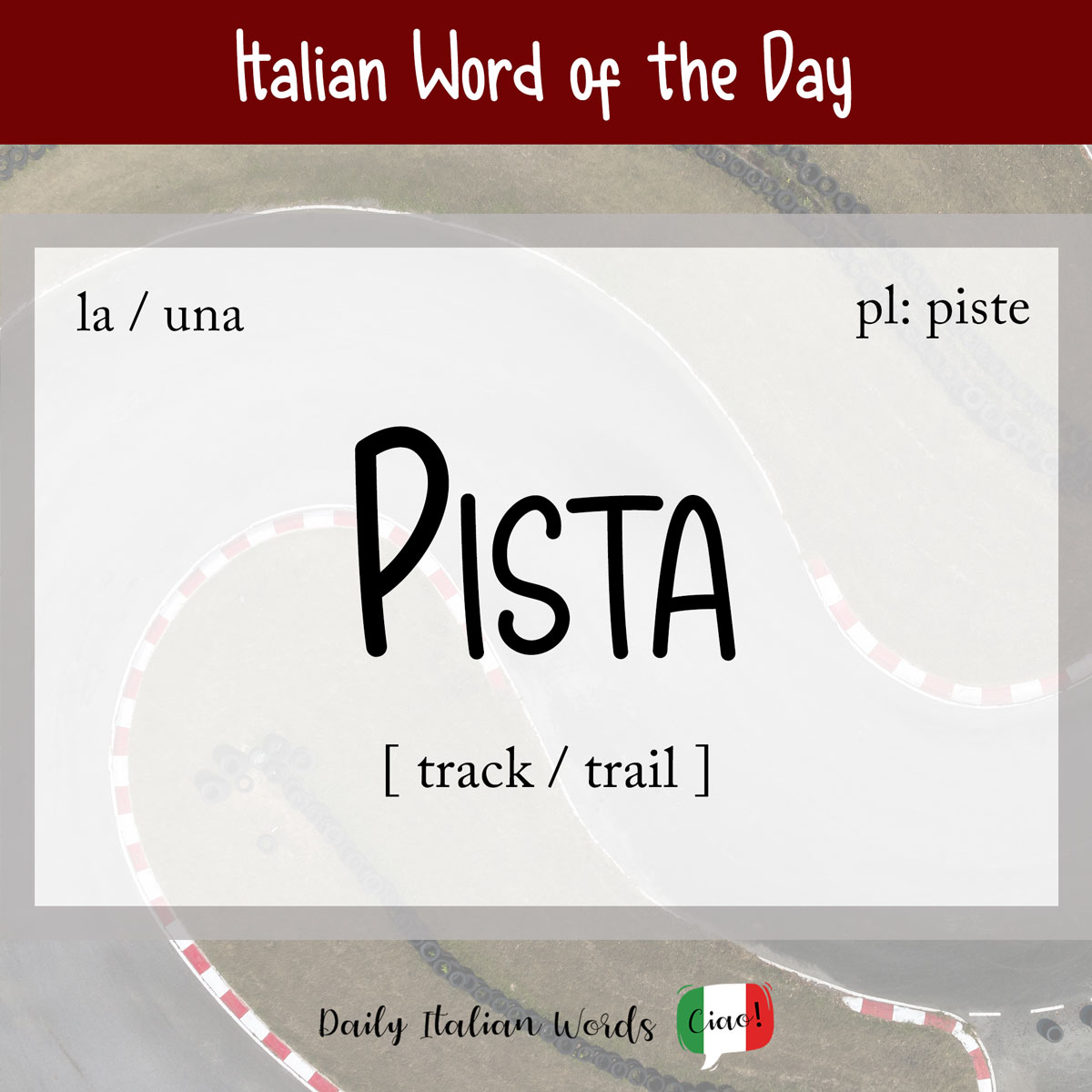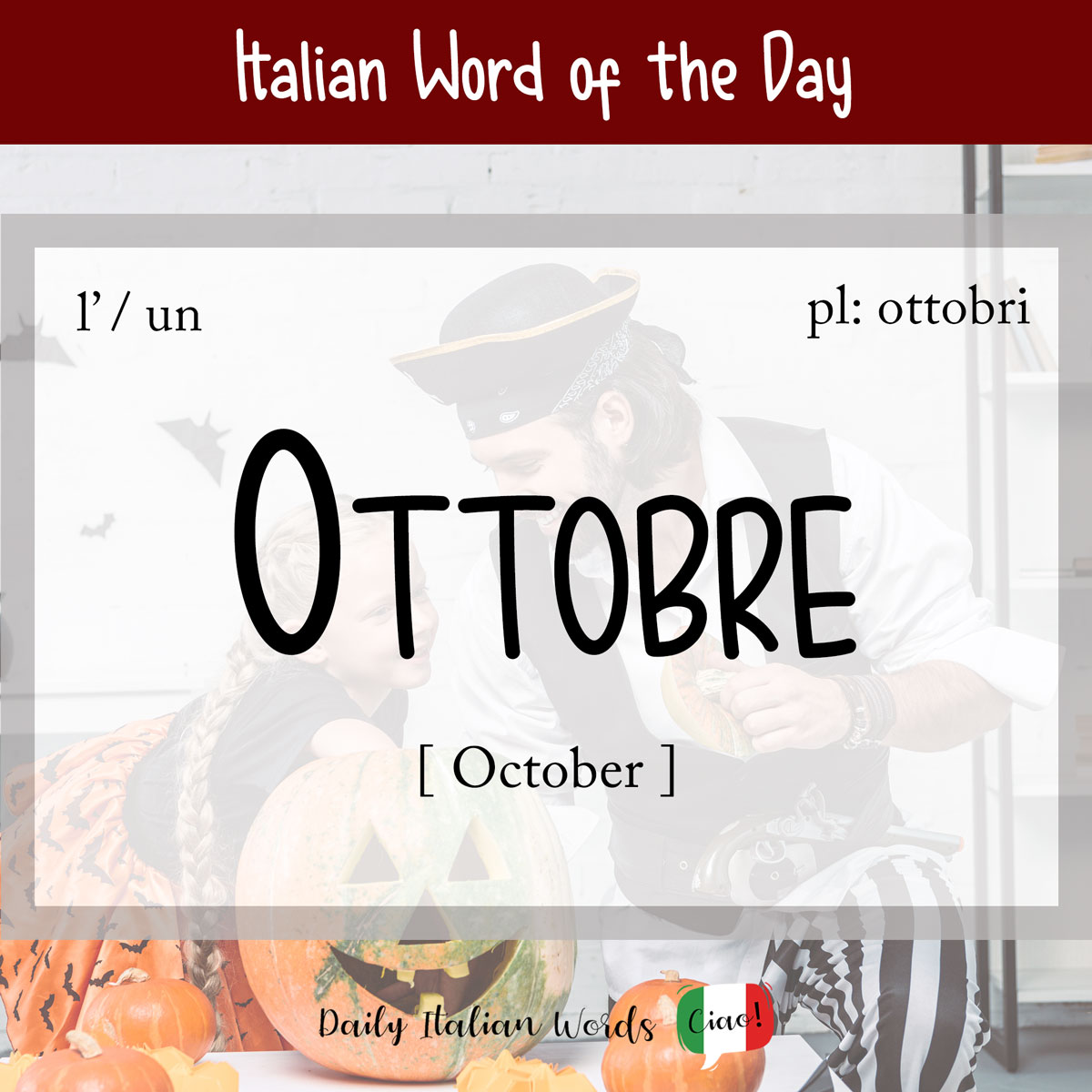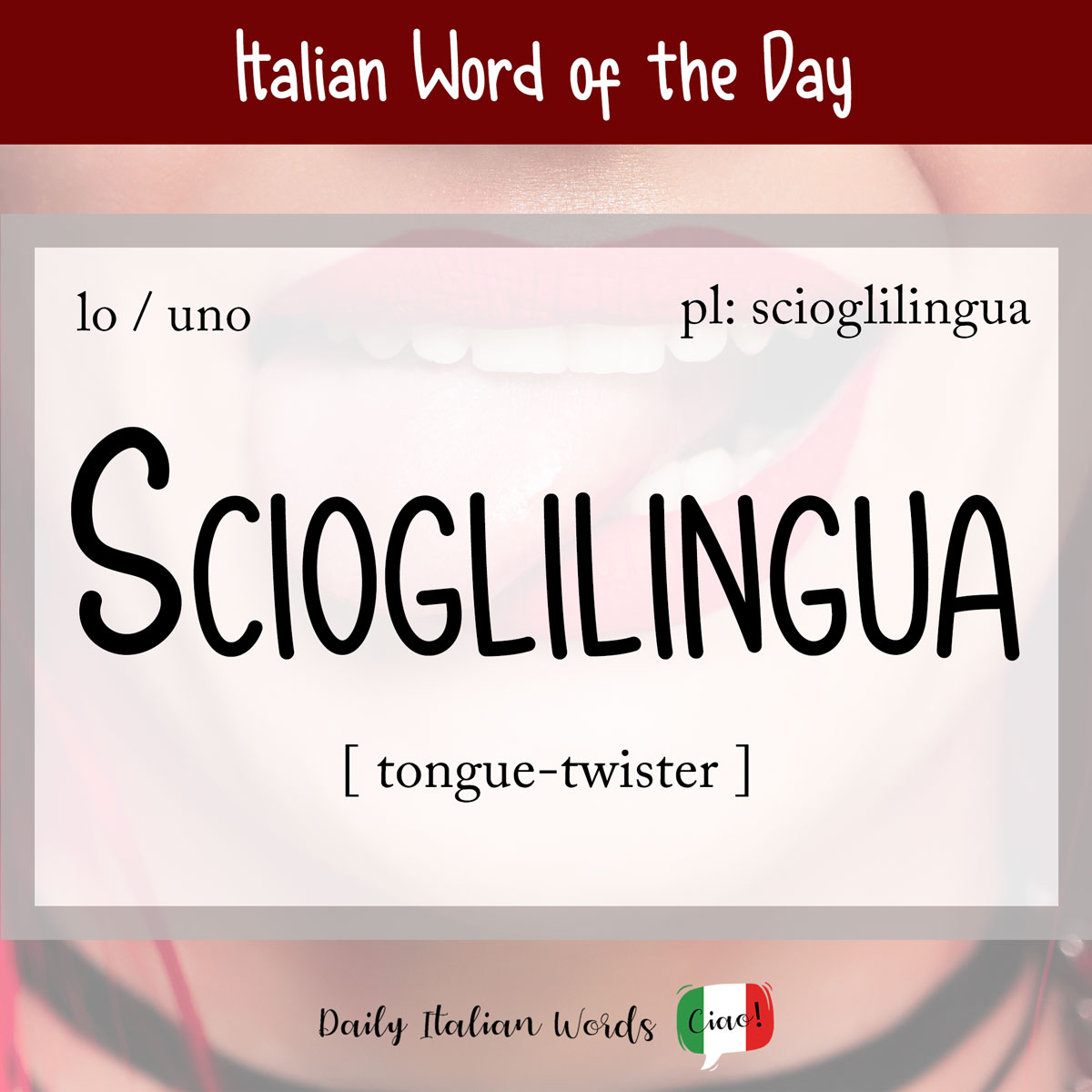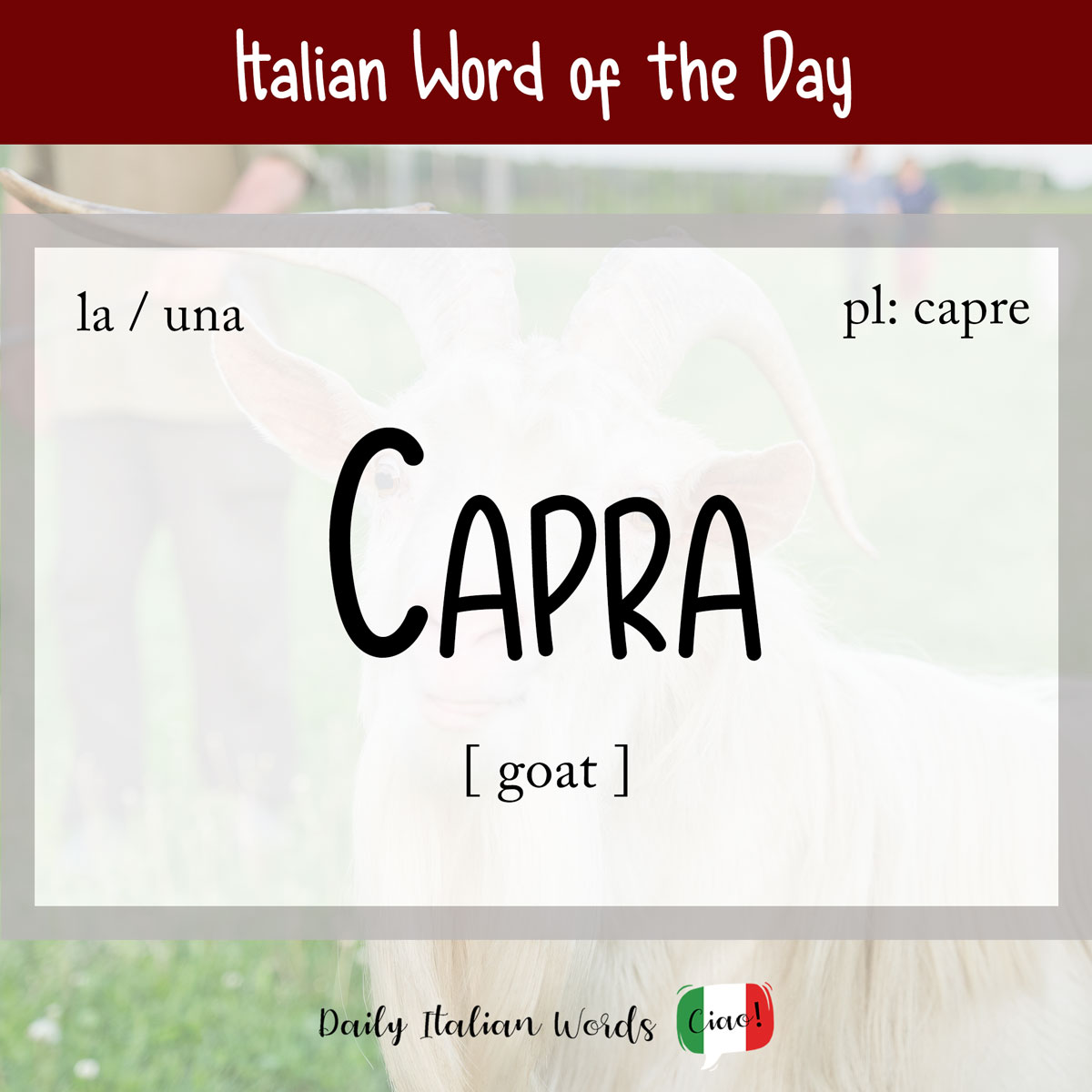Italian Word of the Day: Raffreddore (cold)
With estate (summer) behind us and autunno (autumn) in full swing, the cold season is just around the corner. In Italian, a cold is referred to as a raffreddore. raffreddore cold Important! In English, we use the word cold to refer to both the sensation of coldness, and to the common infection that tends to …

